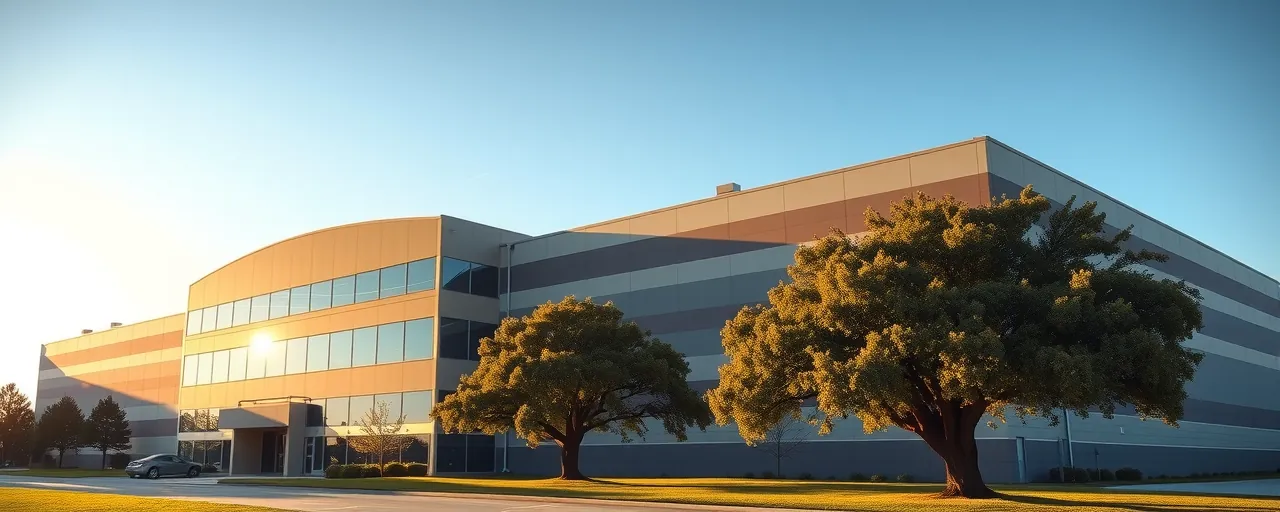A Spark for Wayne County
Goldsboro, a tight-knit community in Wayne County, North Carolina, is about to get a major economic lift. Pelsan Tekstil, a Turkish firm specializing in breathable films for hygiene and medical products, has chosen this rural hub for its first U.S. factory. With an $82.6 million investment and 216 new jobs on the way, the project signals opportunity for a region hungry for growth. For locals, it feels like a door opening to a brighter future.
Pelsan’s arrival isn’t just a local story. It ties into a global shift where companies are rethinking how and where they produce goods. North Carolina’s blend of skilled workers, strategic location, and business-friendly policies made it a natural fit. Still, the project prompts bigger questions about what it means for Wayne County and how it reflects broader trends in manufacturing and economic development.
What Drew Pelsan to Goldsboro?
North Carolina stood out to Pelsan for clear reasons. The state offers strong infrastructure, a capable workforce, and easy access to North American markets. Ali Sisman, Pelsan’s CEO, praised the region’s commitment to innovation and partnership. The new facility will churn out films for diapers, medical gowns, and other essentials, meeting rising demand across the continent. For Pelsan, Goldsboro is a launchpad to expand its global footprint while embedding itself in a community ready for change.
State and local efforts helped make it happen. A Job Development Investment Grant, approved by North Carolina’s Economic Investment Committee, promises up to $2.065 million over 12 years, linked to job and investment goals. The deal is expected to return $2.15 in state revenue for every dollar spent. Collaborations with Wayne Community College and Duke Energy ensure Pelsan has trained workers and reliable power, setting the stage for success.
How It Changes Wayne County
Wayne County’s average wage sits at $46,211, so Pelsan’s jobs, averaging $48,789, bring a welcome increase. The $12 million annual payroll is set to ripple through local businesses, from trucking to retail, potentially supporting 150 more jobs. Leaders like Representative John Bell and Senator Buck Newton view the investment as a game-changer for the area. In a rural region where opportunities can feel scarce, Pelsan’s arrival carries a sense of possibility.
Not everyone is sold, though. Some locals worry the jobs might not prioritize residents or could favor experienced hires from elsewhere. Others point to research questioning the value of state incentives. Since the 1930s, states have used grants and tax breaks to lure companies, but studies show these programs often fall short of sparking widespread growth. Small businesses, in particular, can miss out on similar support, and complex rules sometimes burden smaller firms more than they help.
Part of a Bigger Picture
Pelsan’s move mirrors a surge in reshoring, with U.S. manufacturers boosting domestic sourcing by 15 percent in recent years. Federal policies, like the CHIPS and Science Act, have fueled foreign investment, which hit $2.2 trillion in U.S. manufacturing by 2023. Companies like TSMC and Hyundai are pouring billions into American factories, and North Carolina is carving out a role as a manufacturing powerhouse. Pelsan’s project fits right into this momentum.
The investment also sparks debate about economic strategy. Supporters of equitable growth argue that grants should tie to high-quality jobs and training for overlooked communities. Programs like the Good Jobs Challenge are investing millions to prepare workers in places like Wayne County. Meanwhile, those cautious of heavy government spending call for strict, performance-based incentives to protect taxpayers. Both sides want the same thing: projects that deliver lasting value.
What’s Next for Goldsboro
With construction slated for late 2025, Wayne County is gearing up for change. The Pelsan facility could solidify the region’s place in global supply chains while creating stable jobs for locals. Workforce programs at community colleges are ramping up to equip residents with the skills needed to compete. If it works, this project could pave the way for more investments in rural Southern communities, where manufacturing and agritourism are breathing new life into economies.
Challenges linger, though. Making sure incentives pay off demands careful monitoring. Policymakers need to balance corporate needs with those of workers and small businesses. For now, Goldsboro’s residents are hopeful, watching closely as this project takes shape. Pelsan’s investment is a bold step, and its success hinges on the shared efforts of companies, communities, and leaders.
In a fast-changing world, stories like Wayne County’s show what happens when global companies and local dreams align. For this community, it’s a chance to build a stronger future, job by job.
